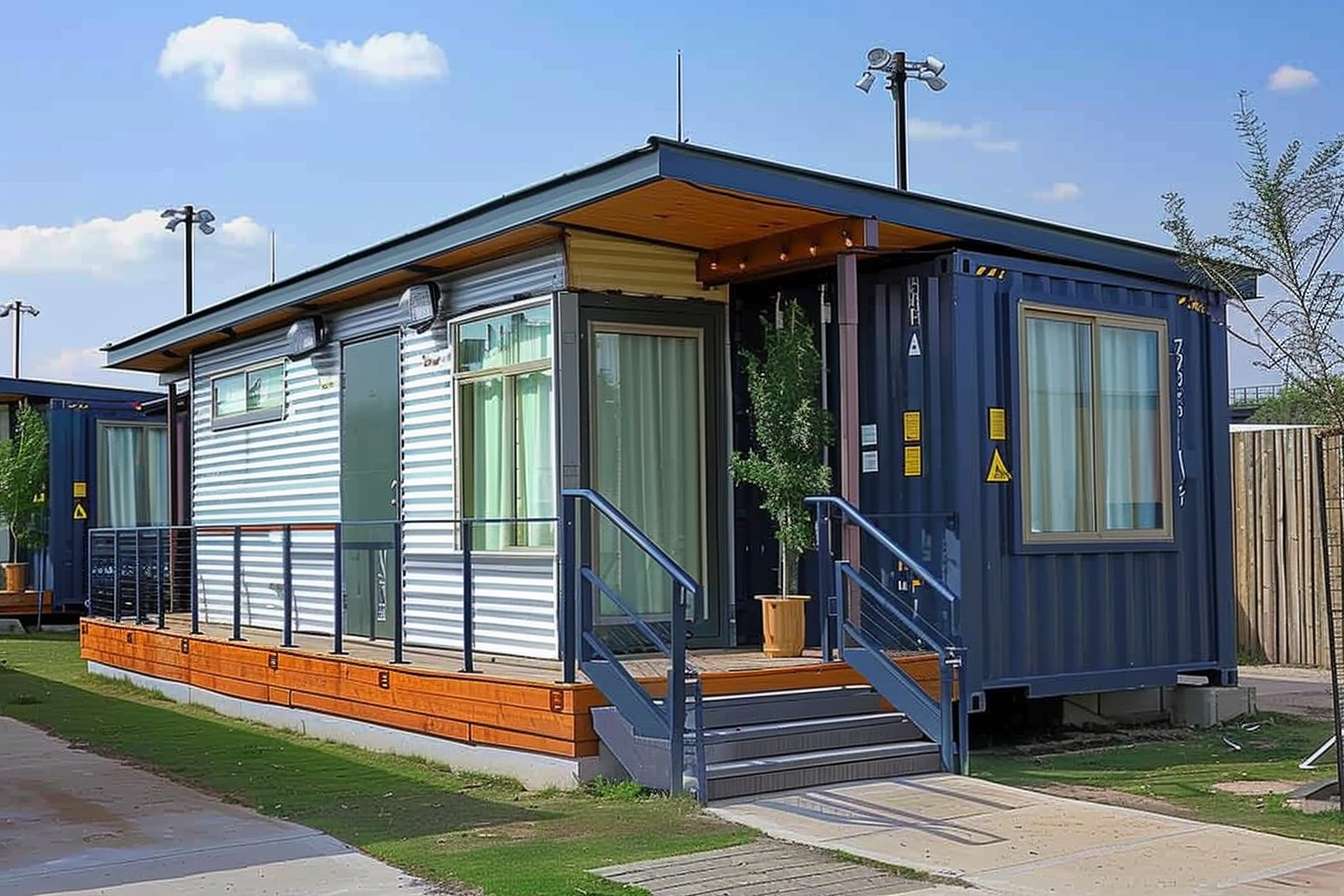Sustainable Housing Solutions: A Growing Trend
South Africa's demand for sustainable housing is rising, driven by eco-conscious values and luxury. Homeowners seek stylish, eco-friendly solutions like recycled shipping container homes with premium finishes. Supportive policies and incentives further boost green building. This trend blends sustainability with elegance, offering a modern lifestyle while minimizing environmental impact and promoting responsible property development.

The Role of Modular Designs and Smart Technology
A cornerstone of sustainable housing in South Africa is the integration of modular designs and smart home technology. Modular construction facilitates more efficient home building with reduced waste. These prefabricated modules are assembled on-site, which decreases the time and resources traditionally required for conventional construction methods. This approach not only makes modular homes more affordable but also guarantees they are built to the highest environmental standards.
Smart home technology further enhances the allure of these living spaces. Features such as automated lighting, energy-efficient climate control systems, and smart appliances empower residents to manage their energy consumption effectively. For instance, solar panels integrated with smart grids can significantly diminish reliance on non-renewable energy sources, rendering these homes largely self-sufficient. By leveraging technology to optimize energy usage, homeowners can enjoy reduced utility bills and a smaller environmental footprint.
The combination of modular designs and smart technology also heightens the flexibility and adaptability of these homes, enabling them to cater to the evolving needs of their occupants. This adaptability is especially advantageous in a rapidly changing world, where the ability to modify living spaces to suit new requirements is increasingly valuable.
Advanced Insulation and Green Building Practices
Insulation plays a pivotal role in the sustainability and comfort of these homes. Advanced insulation techniques ensure homes remain warm in winter and cool in summer, reducing the need for artificial heating and cooling. Materials such as recycled denim, sheep’s wool, and cellulose offer effective insulation while being environmentally friendly.
Green building practices complement these insulation techniques. They encompass the use of non-toxic materials, sustainable sourcing of resources, and efficient water management systems. For instance, rainwater harvesting systems and greywater recycling help conserve water, a precious resource in many parts of South Africa.
By adhering to these practices, sustainable homes not only reduce their environmental impact but also create a healthier living environment. The use of non-toxic materials ensures superior indoor air quality, which is crucial for residents’ well-being. Additionally, these practices often result in long-term cost savings, as efficient resource management leads to lower utility bills and maintenance costs over time.
Embracing a Sustainable Lifestyle in South Africa
Choosing to live in a sustainable home goes beyond a housing decision; it is a commitment to a lifestyle that prioritizes environmental responsibility and personal well-being. In South Africa, the benefits of this lifestyle are numerous. By reducing reliance on non-renewable energy sources, homeowners can significantly lower their carbon footprints. This not only aids in combating climate change but also fosters a sense of personal contribution to global environmental efforts.
Moreover, sustainable homes often come with financial savings. While the initial investment may be higher, the long-term savings on energy and water bills can be substantial. This makes sustainable living not only an ethical choice but also a financially prudent one.
Real-life examples abound, such as developments that showcase the potential of sustainable living. These communities are designed with a focus on renewable energy, community gardens, and shared resources, illustrating how sustainable living can be both practical and fulfilling.
In conclusion, the trend towards innovative green living in South Africa reflects a broader shift in societal values towards sustainability and luxury. As more people embrace this lifestyle, the demand for sustainable housing solutions will continue to grow, driving further innovation and progress in this exciting field. By choosing sustainable homes, residents can play a part in shaping a more sustainable future, one that balances the needs of the environment with the comforts of modern living. Explore how joining this movement can contribute to a brighter, greener tomorrow.
Disclaimer: All content, including text, graphics, images and information, contained on or available through this web site is for general information purposes only. The information and materials contained in these pages and the terms, conditions and descriptions that appear, are subject to change without notice.




